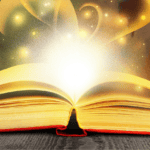Harvard’s English faculty hosts a powerhouse of acclaimed creative writers. As lecturers and professors, they devote countless hours to passing on the skills of their craft to students. The Crimson asked four faculty members who teach fiction-writing classes to share their creative writing wisdom.
“You can make an entire world up in your head and transmit it to other people with scribbles on a page,” said Claire Messud, a Senior Lecturer. “Making up stories is open to all of us.” While not every Harvard student will have the opportunity to take their classes, anyone can try their hand at creative writing.
Start small, and make time to write.
Paul Yoon, Briggs-Copeland Lecturer, in an email: Start small. Oftentimes when we have an “idea” to write something, we’re operating on a level that is somewhat abstract and leans on the bigger picture. How to begin a story you want to tell? I like starting with just one sentence or focusing on an object or a specific detail, like describing setting or one character trait. Just that. Go micro, focus. Start small. And go step by step from there.
Claire Messud, Senior Lecturer: Learning the habit of making time for writing is the challenge for many people. Almost everybody makes time to exercise now. It’s just the same—you can say, I’m going to sit at my desk for an hour, or write until I have 200 words. You just make a plan. If you do something several times a week for weeks and months, you will get better at it.
Imagine the iceberg, not just the tip.
CM: It isn’t just about figuring out a plot and characters. It’s about really imagining the world, circumstances, and particularities of those characters and that situation—not just what’s going to appear on the page, but the entire world. Hemingway speaks about the tip of the iceberg. The tip of the iceberg is what the story is, but there’s an entire iceberg under the water. You have to make the iceberg to make the story.
Revise for clarity.
Laura M. van den Berg, Briggs-Copeland Lecturer, in an email: In my experience, a common struggle for students is the discomfort of sitting with the uncertainty of the first draft—i.e. I’m not sure where this story is going, I don’t know what this character is up to, I don’t know how it will end. Sometimes students worry that this not-knowing is a sign that they’re doing something wrong, when the not-knowing is very often an essential part of the process.
I tend to write my own drafts very quickly and messily and intuitively—and then spend a lot of time re-shaping and re-casting and re-imagining. In the first draft, the most important question I ask myself is “Why not?“ For every draft after the first, the question is, “Why?”
CM: Revision is really at least 50 percent of the work. Some of the things to think about: How much of what’s in my head have I conveyed on the paper? Have I been clear? It’s great to be beautiful or lyrical or inventive, but none of it matters if you haven’t expressed clearly what you wanted to express. The process of revision is about a clarification and a distillation. If you have three scenes, each of which does one thing, can you figure out a way to have one scene that will do all three things?
Read as if living depended on it.
Jamaica Kincaid, Professor of African and African American Studies in Residence, in an email: It is more important that you read than to write because when you are writing you have first read what you are writing before you write it. So the best thing, so it seems to me, for a writer is to read as if living depended on it. Nothing else really matters.
LMV: If you want to write poems or short stories or essays or novels, it is critically important to have read deeply in the genre—from the canon to what the canon has missed to what’s being written right now to everything in-between. And of course writers should also read expansively, roaming outside the genres they themselves work in.
PY: Always be open to inspiration. “Best American Short Stories” is a fantastic anthology. In terms of literary magazines, I think my current favorite, the ones that feel bold and ambitious and the ones I consistently want to pick up are: Tin House, A Public Space, and Ecotone. Books and stories are our best teachers.
Take your time during the publishing process.
LMV: Take your time getting to know the landscape. Read literary magazines and get a feel for who regularly publishes work that you love. Pay attention to where writers you admire have published/are publishing their work. Make sure you have given your work everything you have before you send it out into the world—an editor (almost always) is only going to read the piece once. Mightily resist the urge to rush.
No writing is wasted.
CM: No writing is a waste of time. You can always write better, and any writing you do is going to teach you how to write. You just have to dive in. You have to be unafraid. The language is ours. What a great freedom.
Source: https://www.thecrimson.com/article/2018/2/14/creative-writing-advice/










